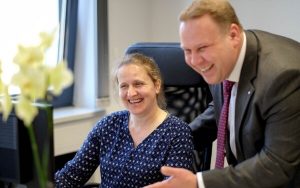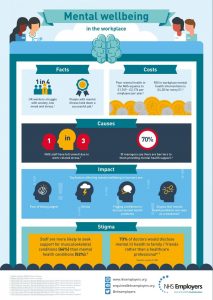
In Wales, more than 7,000 children rely on government-assisted care—whether placed in public care facilities or with foster parents, which is the case for the majority. In fact, Wales has the U.K.’s highest rate of “looked-after children”—the term used in Britain for kids in any type of foster care—at 115 per 10,000 children. When they leave care, they’re often left to navigate housing, healthcare, and employment alone, without sufficient finances, relying on state benefits and substandard housing.
Soon, they’ll get an income from the Welsh government to help support them. The government recently announced a guaranteed income pilot aimed specifically at “care leavers,” or young people aging out of care at age 18. Every care leaver in Wales will be eligible for payments of 1,600 pounds (about $2,180) per month for two years, beginning the month after their 18th birthday; the pilot is set to begin during the next financial year. Care organizations believe the effort will significantly support recipients during a daunting time of adjusting from years of care to starting a life on their own. If successful, the pilot may inspire other sovereign states, such as Scotland, to follow.
From Finland to Atlanta, Georgia, there are many guaranteed-income pilots running across the world—but the Welsh pilot stands out by offering the highest sum of any pilot so far, Welsh officials say. Offered to any care leaver aged 18, the unconditional funds are predicted to reach about 500 young people in total, and likely to total an investment of 20 million pounds (more than $27 million).
At 19,000 pounds a year (about $25,830), the government says the guaranteed income amounts to a living wage, sitting just above Wales’ current poverty threshold of 18,480 pounds, or 60% of Britain’s median income. While it would not be rescinded if the participant got a job, it will be taxable, and will eliminate eligibility for certain benefits because it will be viewed as income from the overarching U.K. government, whose role it is to deliver welfare.
Jane Hutt, the social justice minister of Wales’ Labour Party government, said the pilot will aim to support the most vulnerable and tackle the “scourge of poverty.” Originally, the plan was to roll out a true universal basic income—with money sent to every citizen—as an anti-poverty measure. That received backlash from the Conservative opposition, which deemed it “a waste of public money.” In an attempt “to be realistic,” Hutt told the BBC, it narrowed the recipient group to one of the most in need.
The transition from childhood to adulthood is difficult for all adolescents, said Scott Ruddock, executive director for children’s services at TACT, the U.K.’s largest dedicated fostering charity, via email. But for care leavers, the distinct challenges they’ve faced “means they need additional help to adjust to becoming an independent adult,” he added. In Wales, only 54% of care leavers in 2019 were in education, training, or employment a year after leaving care, and around 20% of homeless people are care leavers.
Leaving care is often a shock to the system for many former foster youth, who often received substantial support that suddenly disappears when they turn 18. Guaranteed income could offer a real sense of security to battle the isolation and anxiety, Ruddock said. For example, many have suffered deep trauma from past physical, sexual, or emotional abuse, which is why they ended up in care. They need to afford healthcare as adults to continue dealing with those issues.
Housing is also a major challenge. When former foster youth leave care, local authorities must secure them a place to live, but they’re often unsafe, such as hostels rife with drug and criminal activity. If they go to university, they often have no family to return to during the holidays, and summer accommodation costs thousands more.
Those in low-paid jobs often find themselves worse off than on state benefits, and those on benefits still have to use part of that money to contribute to their housing. In both cases, they also have to apply for one-off grants to afford lump sums like rental deposits. “None of this is sufficient for the needs of young people who leave care,” Ruddock said. “[Guaranteed income] will provide a foundation for young people to take control of their lives and become self-sufficient.”
Various income pilots around the world are now targeting very specific communities, like the formerly incarcerated in Gainesville, Florida, and Black fathers in Columbia, South Carolina. In 2020, Santa Ana, California, became the first to launch a pilot for foster-care leavers, in which it sent them $1,000 per month for a year. It showed such promise that in 2021, California became the first U.S. state to adopt the plan statewide, setting aside $35 million for the program.
In Wales, Ruddock said there will need to be a careful evaluation of the pilot to ascertain whether it provides enough assistance. In any case, he said, “We feel proud that Wales is the first country in the world to pilot this type of financial support for care-experienced young people.” If successful, other countries may copy the blueprint. While urging Scotland’s government to do so in a recent media appearance, Scottish Labour politician Pam Duncan-Glancy said that, “The Welsh government have significantly less powers in social security than we do in Scotland. And look at what they’re about to embark on.”
Fast Company , Read Full Story
(29)
Report Post





